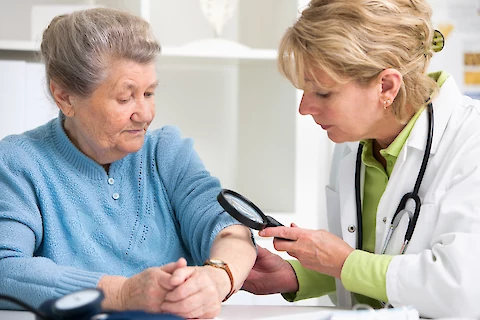
As you age, it becomes increasingly important to monitor your health regularly, and one area that shouldn't be overlooked is your skin. Skin cancer is the most common type of cancer, but with early detection through regular skin cancer screening and proper care, it can often be treated successfully. This is especially important for seniors, who may be at a higher risk due to various factors.
Average Frequency for Skin Cancer Screening
Generally, it's recommended that seniors have a skin cancer screening at least once a year. This helps ensure that any potential skin cancer is detected early enough for successful treatment. Regular check-ups are crucial because skin cancer can develop at any time, and early detection is key to a better outcome. Staying on top of your skin's health can help you catch any concerning changes as soon as they occur.
Factors That May Require More Frequent Screening
Several factors might necessitate more frequent skin cancer screenings for some seniors. If you have any of the following risk factors, consider talking to your healthcare provider about the optimal screening schedule for you.
Common Risk Factors
If you have any common risk factors, you might need more frequent screening, and these factors include:
- A family or personal history of skin cancer significantly increases your risk and may call for more frequent screenings.
- If you have fair skin, light hair, and light eyes, you're at a higher risk of developing skin cancer.
- Having numerous moles or atypical moles can also increase your risk.
Environmental Factors
Some common environmental factors include:
- Living in a sunny area exposes your skin to more harmful UV rays, increasing your risk of skin cancer.
- Spending a lot of time outdoors for work or leisure activities can also contribute to this risk.
- A history of sunburns or excessive sun exposure throughout your life can increase your likelihood of developing skin cancer.
Tips for Seniors to Protect Their Skin and Detect the Early Signs of Skin Cancer
Taking proactive steps to protect your skin can help reduce your risk of skin cancer. Here are some tips to keep in mind:
- Wear sun-protective clothing and wide-brimmed hats when outdoors.
- Apply sunscreen with SPF 30 or higher each time you go outside, and reapply regularly.
- Seek shade during peak sun hours to minimize sun exposure.
- Perform regular self-examinations for new or changing moles or skin lesions, and familiarize yourself with the early signs of skin cancer.
- If you notice any suspicious changes to your skin, promptly report them to your healthcare provider.
Senior Helpers Stillwater Offers Transportation Services for Skin Cancer Screenings
Skin cancer screenings play a crucial role in protecting the health of seniors, so make them a regular part of your healthcare routine. Depending on risk factors and environmental factors, you may need more frequent screenings to catch any concerning changes early. For those living in Stillwater, Bayport, North St. Paul, Forest Lake, Hugo, or Scandia, schedule a skin cancer screening appointment and partner with Senior Helpers Stillwater for transportation to and from your appointment. Contact us today to discover all the services we offer!